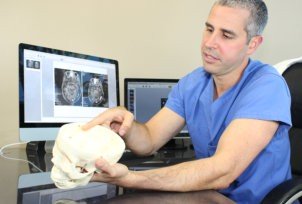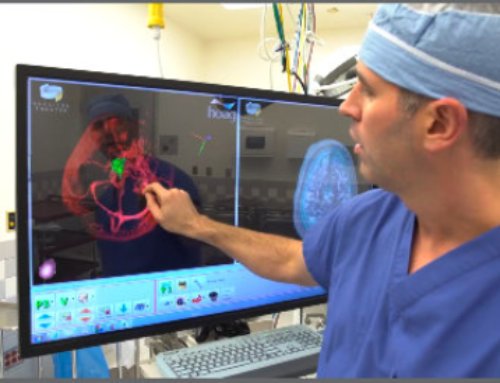What Procedures Do Neurosurgeons Do?
What Is a Neurosurgeon?
The titles neurologist and neurosurgeon are frequently interchanged, and while the two specialties are closely related, they are separate. You may consult a neurologist for evaluation and diagnosis if you have a medical ailment or accident that affects the brain and nervous system. If a neurologist finds that your condition necessitates surgery, you’ll need to see a neurosurgeon for additional medical advice and surgical treatment.
Brain and spine surgeries have been considerably improved thanks to modern surgical technologies. Adult and pediatric patients can benefit from neurosurgical interventions – surgical and non-surgical alternatives are available, and treatment options are chosen based on the nature of the disorder, disease, or type of injury.
Before performing difficult surgical procedures involving the brain, spine, and nervous system, neurosurgeons complete several years of medical school and intensive training. Neurosurgeons, in fact, have one of the most extensive training programs of any medical specialty.
Procedures Performed by Neurosurgeons
Many people immediately think of “brain surgery” when they hear “neurosurgery.” The reality is that many neurosurgeons spend more time detecting and treating spine concerns than brain problems. There is an extensive list of conditions that are treated by neurosurgeons – read on to learn about the most common procedures.
Anterior Cervical Discectomy– When a herniated disc induces severe neck pain that does not respond to conventional treatments, surgery is recommended. The problematic disc is removed, resulting in a long-term fix.
Craniotomy – Craniotomy is a surgical intervention in which the skull is removed to gain direct access to the brain beneath to treat a variety of brain conditions and injuries. The bone-flap is recovered when the surgery is successfully completed, leaving no evidence of the damage.
Laminectomy – Pressure on the spinal cord or nerve roots is relieved with this surgical intervention. If other medical therapies for low back or neck discomfort caused by a disc or tumor have failed, laminectomy may be your only option.
Microdiscectomy– Spine surgeons perform microdiscectomy on a frequent basis. The herniated or bulging piece of the intervertebral disc that is crushing the migrating spinal nerve root is removed during the procedure. This neurosurgical surgery is used to alleviate lumbar herniated disc discomfort and pain.
Lumbar Puncture – A lumbar puncture, often referred to as a spinal tap, is a treatment used to diagnose a number of central nervous system disorders. A hollow needle is inserted into the area surrounding the spinal column in the lower back to remove cerebrospinal fluid or inject drugs during this treatment.
Spinal Fusion – This operation is used to treat degenerative disorders of the spine as well as serious injuries. The intention of spinal fusion surgery is to retain the patient’s spine in a stable posture.
Epilepsy Surgery – If anti-seizure medications fail, doctors may recommend epilepsy surgery. This procedure eliminates or changes a specific region of your brain where seizures arise to restore normal brain processes. When seizures occur in only one section of the brain, it is most effective.
Ventriculostomy – Doctors will use a tube to remove extra fluid from a patient’s brain during the ventriculostomy treatment. This is a surgery that is done without the use of prosthetics.
Ventriculoperitoneal Shunt– The goal of this procedure is to drain the fluid that has collected in a patient’s brain. A shunt is placed into the brain to drain the extra fluid that has built up in the head.
At Brain Spine MD, our Newport Beach neurosurgeon uses the most up-to-date, minimally invasive, and open neurosurgical procedures on the brain, spine, and nerves to help patients regain movement, comfort, and capacities. Our dedicated team engages with each patient to investigate and determine the best course of action. We pay close attention to your concerns and respond to your inquiries. If surgery is required, you will be informed as to why, what to anticipate, and how you can support your recovery.


















